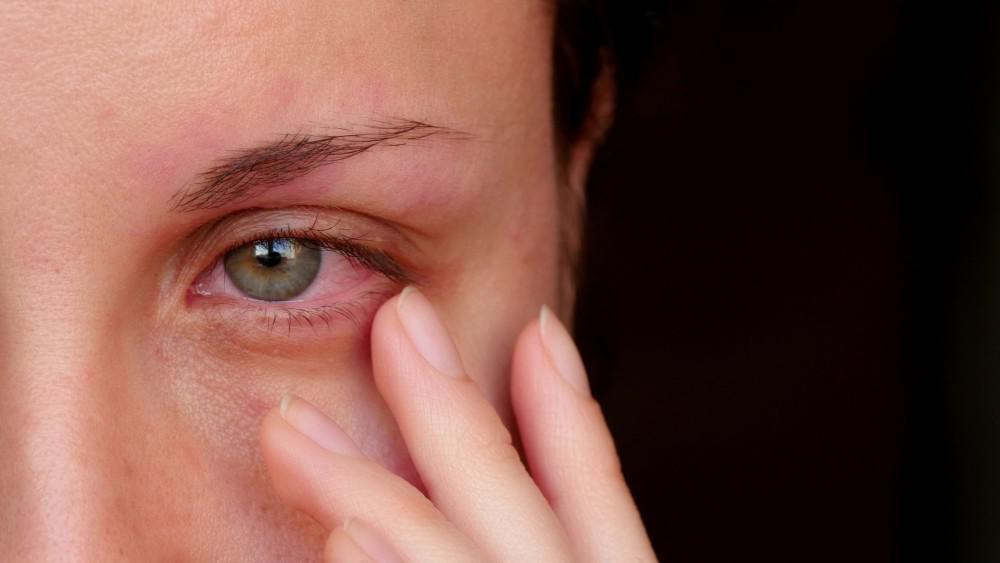Even if your eye doesn’t hurt, if it’s red, something is irritating and inflaming it. You may temporarily have red eyes if you’re exposed to pollen, dry air, or pollution. But if the redness lasts more than a week or if it’s accompanied by pain or other symptoms, you need to see an ophthalmologist or, in some cases, go to the emergency room.
John Ghobrial, MD, is an expert ophthalmologist who thoroughly evaluates, diagnoses, and treats red eyes at Eye Associates of Monmouth in Colts Neck, New Jersey. If you have a red eye or eyes, don’t ignore the problem. See a doctor. Here, we explain some of the reasons behind chronically red eyes.
Injury
You know it when you get punched in the eye or suffer any kind of severe, acute trauma. But even a small piece of dust you don’t notice right away could scratch the cornea (surface) of your eye, resulting in pain and redness.
Your eye may also become injured if it’s exposed to chemicals. That’s why it’s always important to wear protective eye gear if you’re working around or using irritating chemicals or performing activities — such as woodworking or soldering — that could result in something striking your eye.
A broken blood vessel inside your eye may manifest as a subconjunctival hemorrhage, which can turn your eye bright red. You also can accidentally break a blood vessel by putting too much pressure on your eye through rubbing or even intensely coughing, sneezing, or vomiting.
Although a subconjunctival hemorrhage looks dire, it usually resolves within a couple of weeks. If pain accompanies the redness, see a doctor right away.
Irritation
Your eyes can become irritated and red for a variety of reasons. Simply wearing contact lenses may irritate your eyes, particularly if they’re dirty or they’ve lost their shape.
Allergies can cause irritation. You may find your eyes become red after exposure to common allergens such as pet dander, cigarette smoke, and pollen. If you rub your itchy eyes, they may become even redder and more irritated.
You may also develop a stye on your eye, which can make it feel uncomfortable and look red. A stye is a blockage of a gland on your eyelid and usually clears by itself.
Infection
Some of the most common eye conditions that cause redness can be caused by a viral or bacterial infection, including:
- Conjunctivitis (pink eye)
- Blepharitis
- Uveitis
- Corneal ulcers
Many of these conditions can also be caused by irritation, as when you scratch your cornea. Conjunctivitis is highly contagious — if you have pink eye, avoid touching your eye and limit your exposure to others who might catch it from you, especially children.
Dry eyes
As you age, you produce fewer tears. Tears keep your eyes moist and comfortable. Dry eyes are more likely to become irritated, injured, and reddened. Dry eyes are common, especially in women. You’re also more likely to have dry eyes if you wear contact lenses.
Lifestyle-related habits
While the association between red eyes and alcohol consumption has become something of a cliche, that doesn’t mean there isn’t truth to it. Drinking alcohol causes the blood vessels in your eyes to dilate, and smoking marijuana can irritate your eyes. Both habits can lead to chronic redness and dryness.
Disease
Chronically red eyes could also be a sign of a serious disease, such as angle-closure glaucoma, which could destroy your eyesight without immediate treatment. These diseases also have red eyes as a symptom:
- Retinoblastoma (a type of eye cancer)
- Rheumatoid arthritis
- Lupus
- Inflammatory bowel disease
- Lymphoma
- Diabetes
- Hypertension
Red eyes accompanied by intense pain, nausea or vomiting, and vision changes could be due to glaucoma or another condition that could blind you permanently. If this occurs, contact us right away.
Call a friend or ambulance to take you to an emergency room for immediate care if your red eyes are accompanied by symptoms such as:
- Nausea and vomiting
- Intense pain or pressure
- Headache
- Decreased vision
- Blurred or haloed vision
- Double vision
- Swelling
- Trouble moving your eyes
- Different pupil size
- Pus or bleeding
- Sensitivity to light
- Pain in your face, jaw, or head
- Eye floaters
If you have red eyes, find out why and get the treatment you need to restore your eye’s health and protect your vision. Contact our friendly team today by phoning the Eye Associates of Monmouth office or by using our online booking tool.


